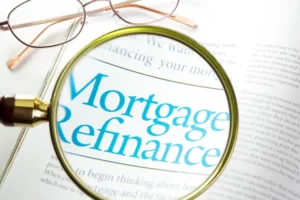Hi, Aleem here – Mortgage Specialist Vancouver.
Loan Mortgage Down Payment, Canada – I’d like to address something that has come up in my conversations with other experts in the industry, that being the topic of interest rates and their relationship with the down payment. Less Money Down Means Lower Rate?
Although it doesn’t make a whole lot of sense, what is happening is a lower down payment on a home might get you a better mortgage rate in today’s market.
The reason behind this is the government subsidy known as mortgage default insurance, which ultimately makes it less risky to lend money to someone with only 5% down compared to someone with 20% available.
The government requires that consumers with less than 20% down obtain mortgage default insurance in Canada if they borrow from a federally regulated bank. An insurance premium costs up to 2.75% of the mortgage amount on a 25-year amortization. Still, this fee comes with 100% backing or a guarantee from the federal government if the insurance is provided by the Crown corporation Canada Mortgage and Housing Corp (CMHC).
Non-institutional, mortgage-only lenders, also called monoline, are already offering rates that are 10 to 15 basis points higher for a closed five-year mortgage for uninsured consumers.
When we dig a little deeper, something else that may also be a catalyst is the crackdown on mortgage insurance announced by Federal Finance Minister Jim Flaherty. Flaherty has placed CMHC under the authority of the country’s banking regulator, the Office of the Superintendent of Financial Institutions, which has been visiting all of the banks, grilling them on their lending practices, and scrutinizing their mortgage portfolio over the past eight months.
Flaherty has also put in new rules on bulk or portfolio insurance. Many banks had previously been paying the insurance premium on low-ratio mortgages – loans with more than 20% down – because it was easier to securitize them. Flaherty says those loans will no longer be allowed in the government’s covered bond program.
The long and short of it is that this will have a push-up effect on rates to some degree. Leading to a very interesting phenomenon where if you go to get a mortgage today, you are often quoted a higher rate on a conventional mortgage which seems counterintuitive as, presumably, you are less of a risk because you have more equity.
The Big Six banks have kept consistent pricing between low-ratio and high-ratio mortgages. Still, there is a question of whether they will continue doing that or raise rates overall to compensate for higher conventional mortgage costs.
A lot is going on on the back end that most of us don’t even realize. Right now, competition among the Big Six banks is keeping rates down and stopping any of them from raising rates for conventional mortgages.
There is a higher cost of funds when a deal cannot be securitized, but the bank continues to offer the same rate.
These institutional lenders, however, have an advantage over their monoline counterparts who deal strictly in mortgages. If you look at everything a little more closely, you begin to realize that banks have more of an interest in you than just your mortgage.
Those customers with the larger equity position in their homes may be a costlier mortgage to fund, but they also could be future line-of-credit customers. There’s also the potential for other business such as RRSPs and TFSA, so losing a few basis points on the mortgage side might make more sense for the Big Six in the long run.
While banks may be eating some of the costs for people who are not eligible for a subsidy, if they continue down that road they might not be able to match the rates some of the monoline lenders are able to offer with insured mortgages.
An article was published recently where an example was used:
“That might not sound like much, but the difference between, say, 3.14% and 3.29% on a $500,000 mortgage amortized over 25 years would be about $3,500 extra in interest on a five-year term.
But what about that extra and not to mention hefty up front fee in insurance premiums? Well 2.75% of 500,000 amounts to $13,750. So are you really getting a better deal?
Most people don’t have this kind of money, especially here in BC where they have to come up with the property transfer tax, so they opt to add the insurance premium to the mortgage.
In the same example as above, adding the premium to the mortgage makes the total mortgage, 513,750. So in reality the consumer is paying 3.14 for 25 years on 513,750 vs 3.29 on 500,000. The difference in interest is still greater with the higher rate and lower mortgage amount, but by about $1,550 dollars, not $3,500.”
So the conclusion:
You do pay less interest over the term when you put less down. These consumers also represent a greater risk to the taxpayer. Less money down does mean a lower rate, and more importantly a lower overall interest cost on the term. Does this really add up?
Searches related to mortgage down payment
minimum mortgage down payment Canada, mortgage calculator with down payment Canada, low down payment mortgage options, mortgage loans that require no down payment, minimum mortgage down payment Canada, using rrsps for down payment on mortgage, what is the standard down payment for a mortgage, mortgage down payment requirements, mortgage down payment calculator, mortgage down payment requirements 2013
Articles related to Lower Down Payment Mortgage
Mortgage Rule Changes – 2012
Pre-Payment Penalty – Lenders Are Taking Action
Collateral Mortgage Charges Explained
Canada Mortgage Rates- a Handy Guide to cibc mortgage rates
The Rate Tango: Canada Mortgage Rates Variable vs Cibc Mortgage Rates Fixed. Become an expert on Canadian Mortgage Rates with our Handy Guide. Many first time home buyers are wondering whether they should take advantage of this low rate or if they should lock in the more secure fixed rate mortgages.
Is This The End Of 5% down payment?
CMHC is the government body that insures mortgages. To put it in the simplest of terms, when CMHC insures a mortgage, it means the bank essentially does not have any risk when it issues the loan. Of course there’s some risk carried by the bank but the Government…
Mortgage Penalties In the Media Again
A self-employed, single mother of a 12 year old boy, also taking care of her elderly mother, made CBC headlines for having to pay a $30,000 early termination penalty on her mortgage, when she was forced to sell her house in April, due to the COVID-19 pandemic.
Daily Corona Virus Mortgage Updates
Canada’s lowest nationally available conventional variable rate is just nine basis points cheaper than a comparable 5-year fixed rate. That minuscule “fixed-variable” spread is now 80% narrower than its 10-year average. The market is no longer compensating new borrowers for the risk of a floating-rate mortgage.
CMHC Rule Changes
Traditionally – if the waters are rough, you do whatever you can to not rock the boat. CMHC today however has rocked the boat. The housing market has weakened over the last few months, due to the pandemic, but Canada’s largest default insurer is making it tougher for people to get a mortgage…
How to Get Financing during the COVID Pandemic
Most of you are going to be very angry at this post because it may seem like I am actually encouraging people to get out there and buy properties.As a matter of fact, anyone who calls me asking for financing options, the first question I ask them is: “Are you really going to be buying a property in the next 3 months?”
Variable Rate Update
During the start of the lockdown due to the COVID crisis, banks hiked their variable rates discounts to prime – 0%. At the time, we predicted that variable-rate discounts will improve significantly once again. Well, very slowly now, we are starting to see this happen.
Coronavirus related to your mortgage
Believe it or not, the coronavirus can have an impact on your mortgage and your interest rate in particular. Listen below to find out exactly how and why.
The Recent Bank of Canada Rate Increase- one broker’s thoughts
What about this recent Bank of Canada Interest Rate Increase? If your discount from Prime -which is now now 3.20%- is 0.50% or deeper – then the variable rate product remains a really great place to be. If your discount from Prime is 0.25% or less, then depending on which lender you are with you may consider…
Employment status Impacting Your Mortgage Qualification
If you are applying for a mortgage, the chances are that you are feeling confident about your current employment status and your ability to find a similar position if need be. Your employment is a key aspect of being approved for a mortgage…
If you would like more information or a free consultation contact Aleem below, and as a Certified Mortgage Specialist let me help you get the home of your dreams. Great Mortgages, Made Simple





